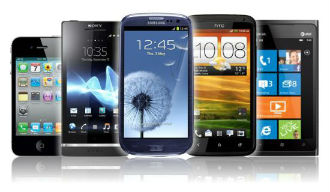 Over 375.2 million smartphones shipped during the fourth quarter of 2014 – that’s up by 28.2 percent compared to the same period the year before.
Over 375.2 million smartphones shipped during the fourth quarter of 2014 – that’s up by 28.2 percent compared to the same period the year before.
 Over 375.2 million smartphones shipped during the fourth quarter of 2014 – that’s up by 28.2 percent compared to the same period the year before.
Over 375.2 million smartphones shipped during the fourth quarter of 2014 – that’s up by 28.2 percent compared to the same period the year before.
 A survey of 125 UK based IT managers and chief information officers (CIOs) has revealed that cloud apps are more widely used than often thought.
A survey of 125 UK based IT managers and chief information officers (CIOs) has revealed that cloud apps are more widely used than often thought.
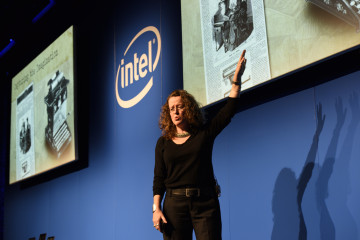 For years Intel has been an engineer’s company, pushed the technology of its chips, and followed a religion based on shrinking and tick following tock. However, it seems that its mindset is changing – and it appears to be something to do with the influence of its vice president anthropologist Genevieve Bell.
For years Intel has been an engineer’s company, pushed the technology of its chips, and followed a religion based on shrinking and tick following tock. However, it seems that its mindset is changing – and it appears to be something to do with the influence of its vice president anthropologist Genevieve Bell.
Yesterday Intel held a product announcement for its 5th Gen Intel Core vPro Processor. In the bad old days we would have been given a spec sheet of all the product’s wholesome goodness and be told how great it was. We would have popped back to the office with a picture of a chip and wrote it up something like “Intel wants a world without wires”.
But the actual technology almost took a back seat – instead there was Bell.
Bell told us about how the workplace was changing along similar lines to the Industrial revolution. The needs of the Industrial revolution created a demand for documentation and lead to the evolution of the typewriter. The typewriter transformed the office and lead to a more diverse workplace, with more women entering for the first time.
Bell argued that technology is doing the same thing now and the workplace is changing and becoming more diverse as older people now work longer and with more ethnic diversity. This change is as a result of evolving technology and a move to more creative and collaborative business practices.
So what does this have to do with the 5th Gen Intel Core vPro Processor? Answering that question suddenly laid bare Intel’s cunning plan and explains Chipzilla’s actions of the last few years. The concept of Intel actually having a cunning plan is surprising, after Intel appeared to miss the so-called mobile revolution, we thought its direction was similar to that of a headless chicken, but Bell seems to be encouraging a different role, which it if pulls off could see Intel at the centre of significant workplace change. Intel is thinking less about the technology, and more about how that technology is going to change the workplace. It is creating small technology combos which could make for bigger changes – not, as it has done in the past in technology, but in the workplace.
Tomasz Klekwski, Intel’s EMEA business market manager said that the technology itself was not enough to bring about the sorts of transformations which Intel wants to take place. In other words, it is not just the chip – it is how the chip fits into the organisation and what transformations the organisation has a result.
5th Gen Intel Core vPro Processor, for example, has wireless features which enable companies to dump a huge amount of fiddly networking cabling. It creates technology which can wirelessly and automatically connect to video screens in meeting rooms and charge and connect laptops but also build hot deskwork environments.
All this is a mobile future but it is far different from the consumer based technology being pushed by Apple and its new chum IBM which emphasises tablets, BYOD and simply packages consumer tech for businesses.
It is a vision which has an Intel notebook at its centre – admittedly one that might turn into a laptop, is super-thin and with a long battery life, but Chipzilla’s traditional money-spinner nevertheless. But listening to Bell and Tom Garrison, Vice President, PC Client Group sell the idea in its historic context it starts to make sense.
As Garrison pointed out – consumer ideas do not work well in the business, and the money is rarely in consumer devices but more in engineering business changes.
The concept that this is all marketing bollocks is not far from the mind of any sceptical journalist, but if you accept the historical approach to the rise of technology touted by Bell you had to admit, Intel is onto something better than simply repackaging consumer fads.
If she is right, then it did not matter too much that Intel missed the mobile computing trend. Sure, it was big enough and should have had a chip in place, but mobile phones and tablets, even the Internet of things are going to be the side-salad in any serious business evolution. It will be small things that make a difference and if you know what the business is evolving into you can make the products it needs.
Intel will have a hard time selling this vision – both to IT journalists and its own staff. The first thing we noticed yesterday was that Intel suits dominated the poorly dressed media – in fact we had the impression that the meeting was more being held for them. Secondly many hacks walked away from the event to write headlines like “Intel wants a world without wires”. Or to sing the praises of the 5th Gen Intel Core vPro.
But as the meeting pointed out, much of the technology of the 5th Gen Intel Core vPro has been around for a decade and slowly evolving. What Intel is noticing is that people are finally starting to switch on and use its functionality. This suggests that companies are getting what IT hacks and technology companies haven’t – it is not about the technology stupid it is how it creates a change. If Intel is the only one to gets that, it will be the only one which makes a lot of money as the workplace changes.
 While there were shortages of monitor panels last year that caused only 133.6 million units to ship, some vendors have done better than expected.
While there were shortages of monitor panels last year that caused only 133.6 million units to ship, some vendors have done better than expected.
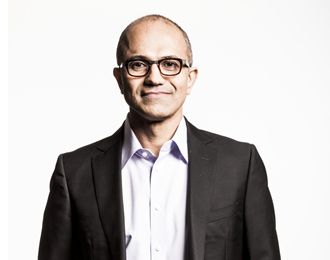 Software giant Microsoft has decided that people who use Android tablets will be able to download Office applications for nothing from today.
Software giant Microsoft has decided that people who use Android tablets will be able to download Office applications for nothing from today.
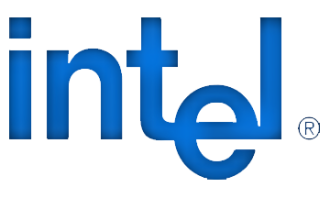 Faced with stiff competition at the mobile end of the market, it appears that Intel is hoping sales of expensive machines to enterprises will set the company back on track.
Faced with stiff competition at the mobile end of the market, it appears that Intel is hoping sales of expensive machines to enterprises will set the company back on track.
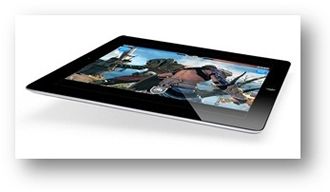 Despite reports suggesting that the market for tablets is in decay, fresh data shows that it ain’t necessarily so.
Despite reports suggesting that the market for tablets is in decay, fresh data shows that it ain’t necessarily so.
 An extensive study by the University Autonomy de Barcelona (UAB) sampled 5,538 secondary school students to gauge the effect of technology in their lives.
An extensive study by the University Autonomy de Barcelona (UAB) sampled 5,538 secondary school students to gauge the effect of technology in their lives.
 Things went better for the notebook industry last year, according to a report from Taiwanese research house Trendforce.
Things went better for the notebook industry last year, according to a report from Taiwanese research house Trendforce.
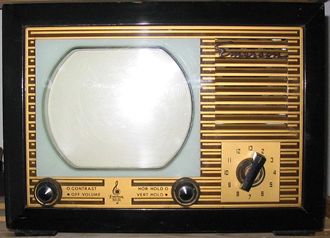 Where once the global flat panel industry focused on unit growth, it appears that it is now taking a bigger interest in area demand.
Where once the global flat panel industry focused on unit growth, it appears that it is now taking a bigger interest in area demand.
 The Supreme Court of India today ordered Microsoft, Google, and Yahoo not to carry adverts for products that will predict the gender of a child.
The Supreme Court of India today ordered Microsoft, Google, and Yahoo not to carry adverts for products that will predict the gender of a child. Big Blue said it has announced a cloud technology that will help ordinary people protect themselves online.
Big Blue said it has announced a cloud technology that will help ordinary people protect themselves online.
 Chip giant Intel is being stubborn about its mobile strategy and will continue to throw money at the problem.
Chip giant Intel is being stubborn about its mobile strategy and will continue to throw money at the problem.